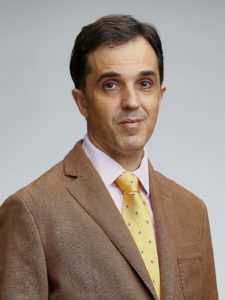
Paul Hedges is Associate Professor in Interreligious Studies at the S. Rajaratnam School of International Studies (RSIS), NTU, Singapore. Previously he was Reader in Interreligious Studies at the University of Winchester, UK, and had worked for other British, Canadian, and Chinese universities before that. He has worked with a range of stakeholder groups outside academia, including the Anglican Communion Network for Interfaith Concerns (NIFCON), the Tony Blair Faith Foundation, the Babaji Yogi Sangam, the Dialogue Society, the World Congress of Faiths, and the BBC. He is on the Editorial Board of both the Journal of Religious History and Studies in Interreligious Dialogue. He publishes widely in interreligious studies, religious studies, and theology. Current research projects include interreligious relations in Singapore and the East and South-East Asian region, as well as interreligious and intercultural hermeneutics.
RSP co-founder Chris Cotter and Paul Hedges discuss the construction of introductory textbooks in the contemporary world, including issues of positionality, criticality, and decolonization.
Francis rightly notes, radicalisation and violence are not necessarily linked: people can be what we call radicalised without becoming violent, while many people are violent without being seen as being radicalised. In the general discourse, particularly in the media, all these terms are often seen as somewhat synonymous, which raises the ever important question about the baggage these terms hold, and what is hidden rather than revealed in using them. Are the terms analytically useful? Or do they have some other utility, perhaps in terms of communicating ideas?
Scholars who deconstruct without re-construction undertake a feeble version of deconstruction that undermines itself (often without realising it).In his interview with the RSP, Teemu Taira refers to his work as in some sense a response to Kevin Schilbrack’s 2013 paper, “After We Deconstruct ‘Religion’, Then What?” However, I don’t find it speaking to the concerns of Schilbrack’s paper. This, is not to question the excellence of Taira’s work, scholarship, or methodology, all of which I am deeply impressed with.
This work is licensed under a Creative Commons Attribution- NonCommercial- NoDerivs 3.0 Unported License.
The views expressed in podcasts, features and responses are the views of the individual contributors, and do not necessarily reflect the views of The Religious Studies Project or our sponsors. The Religious Studies Project is produced by the Religious Studies Project Association (SCIO), a Scottish Charitable Incorporated Organisation (charity number SC047750).